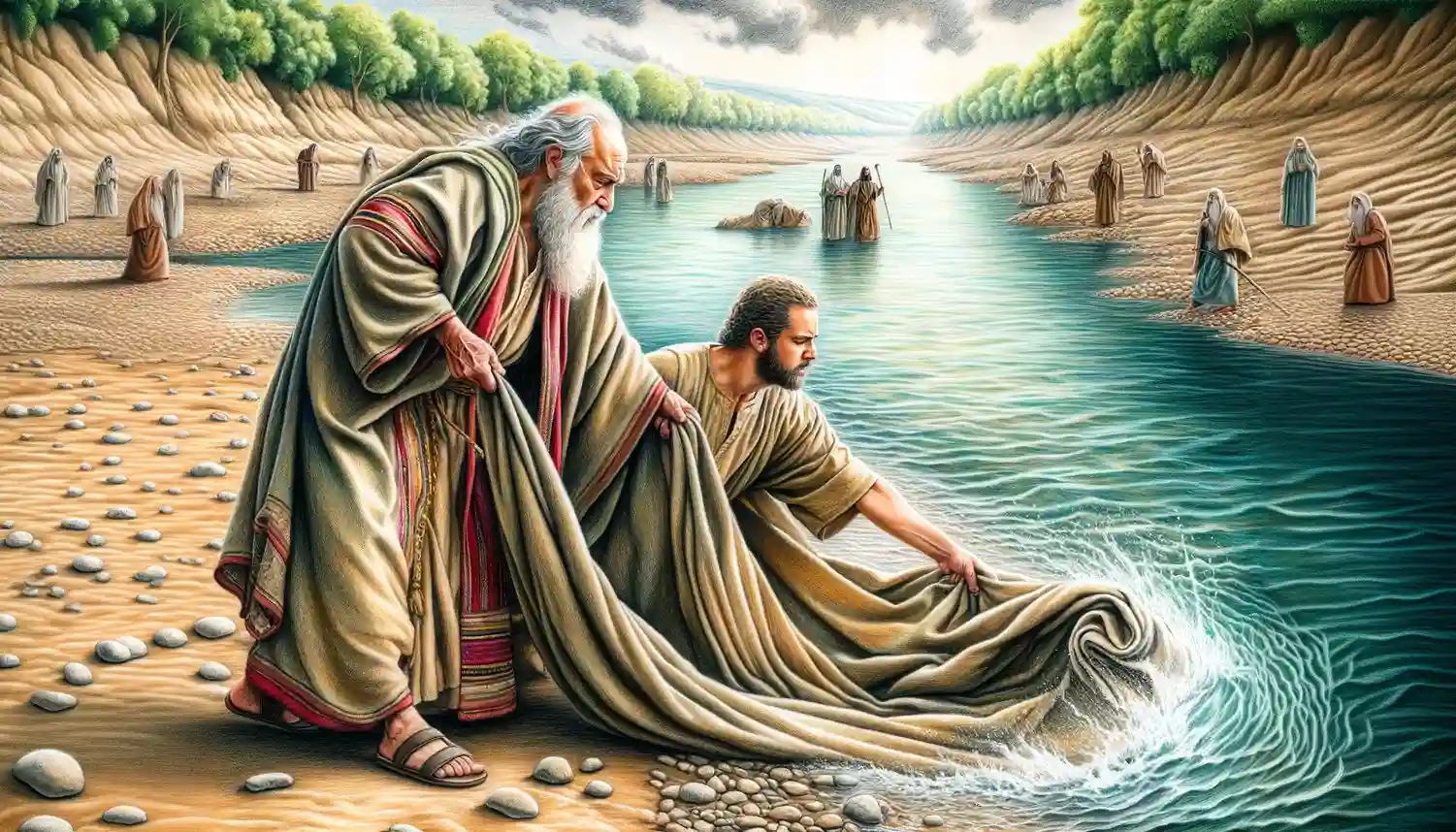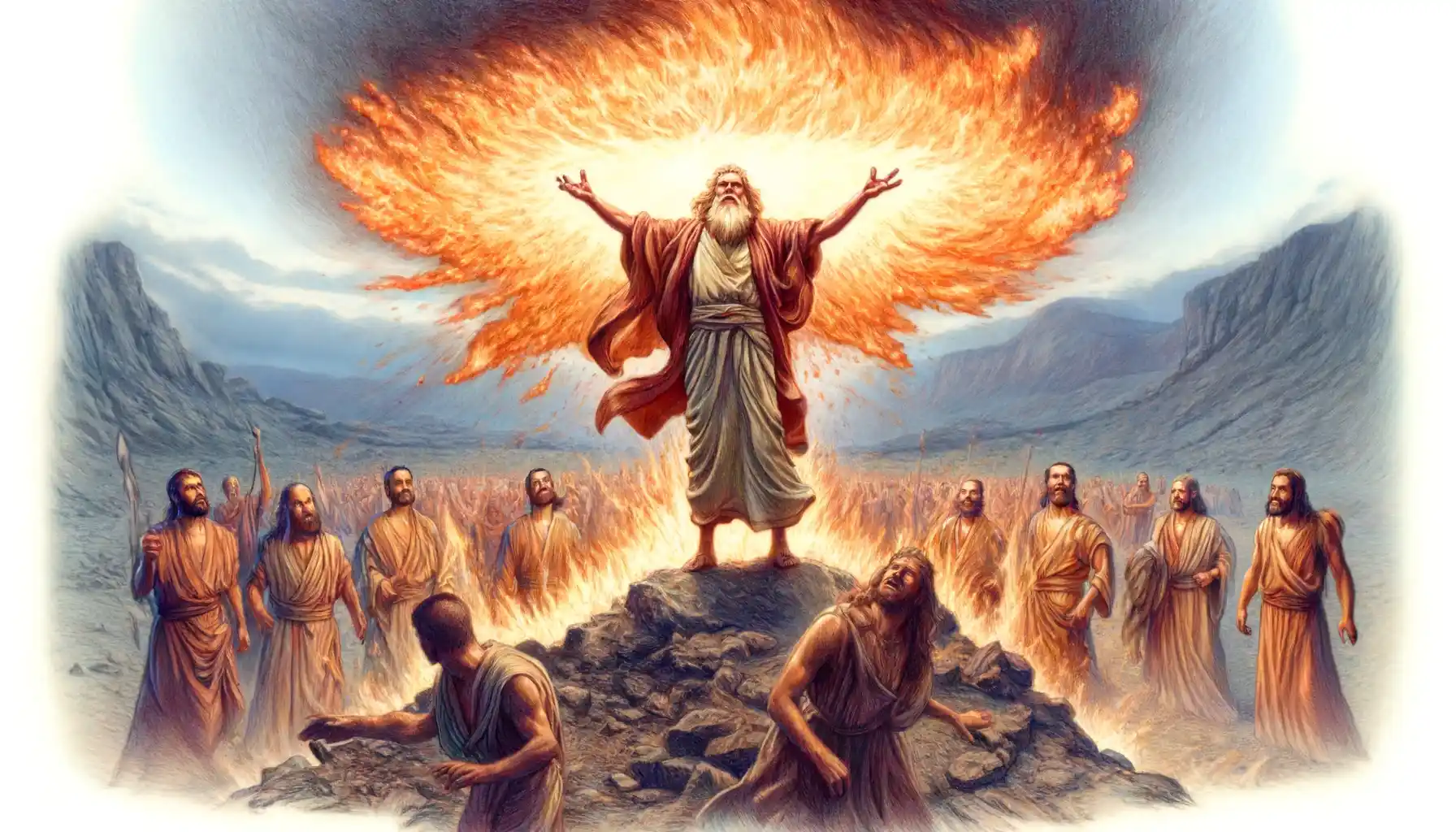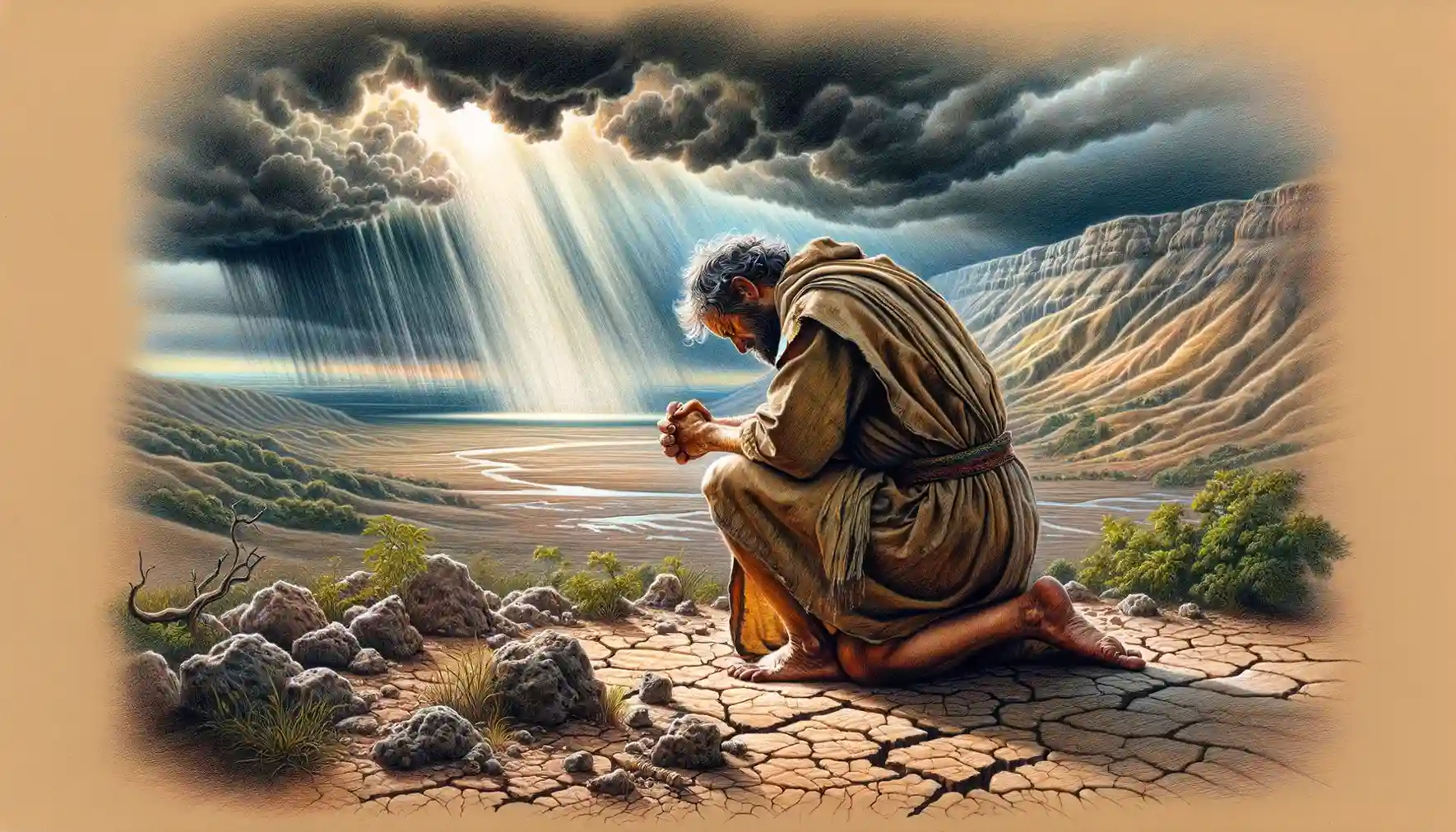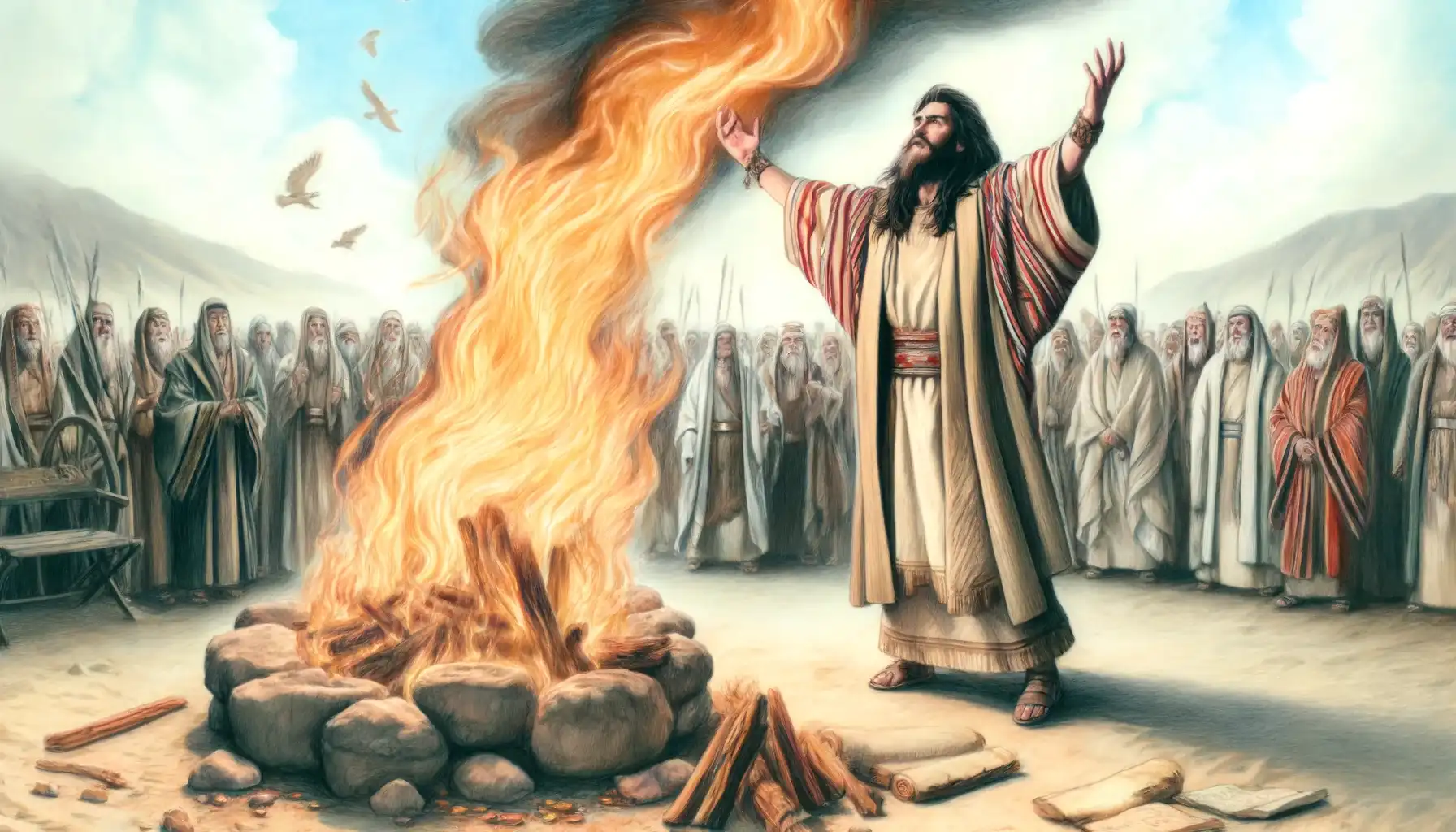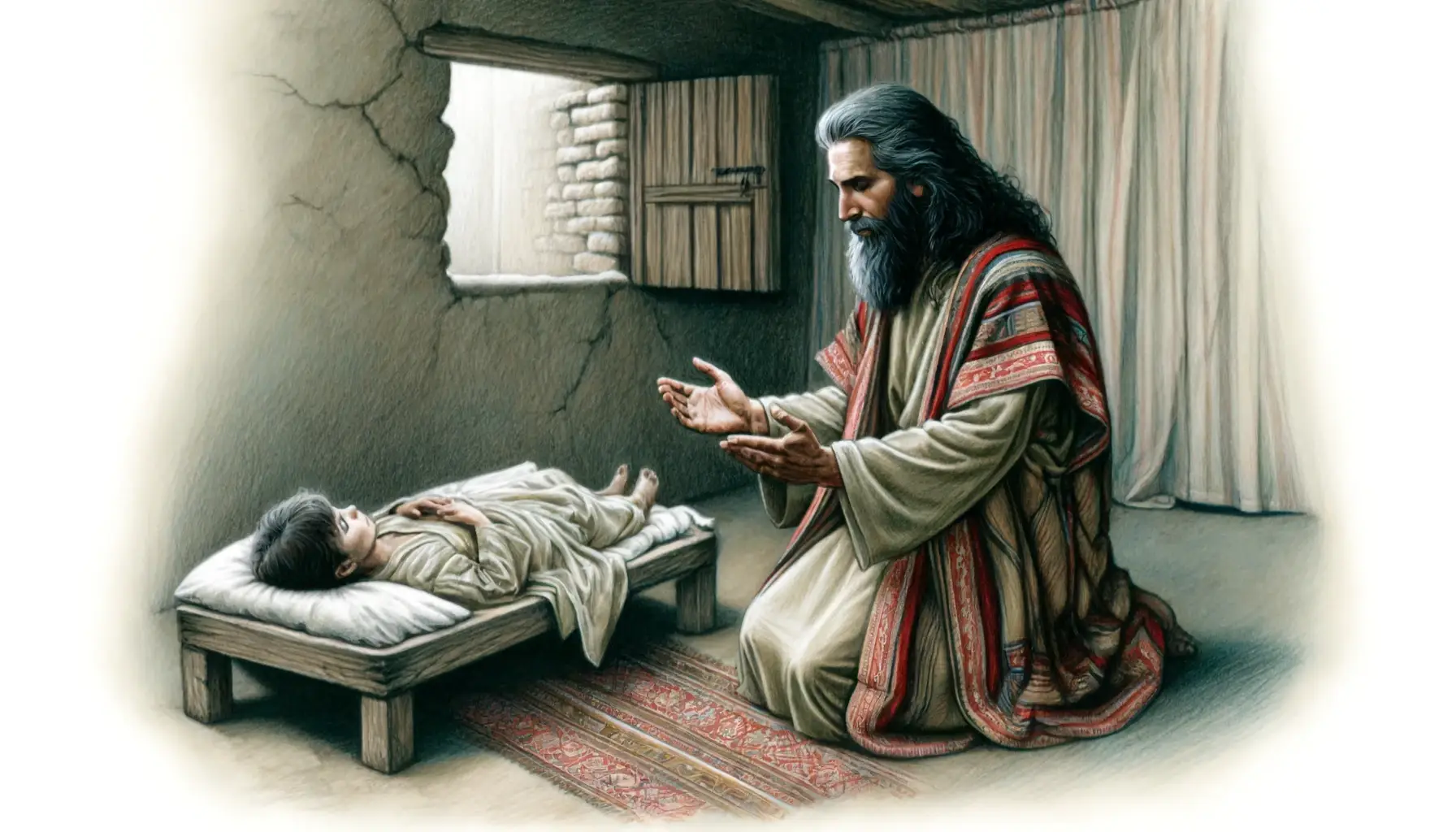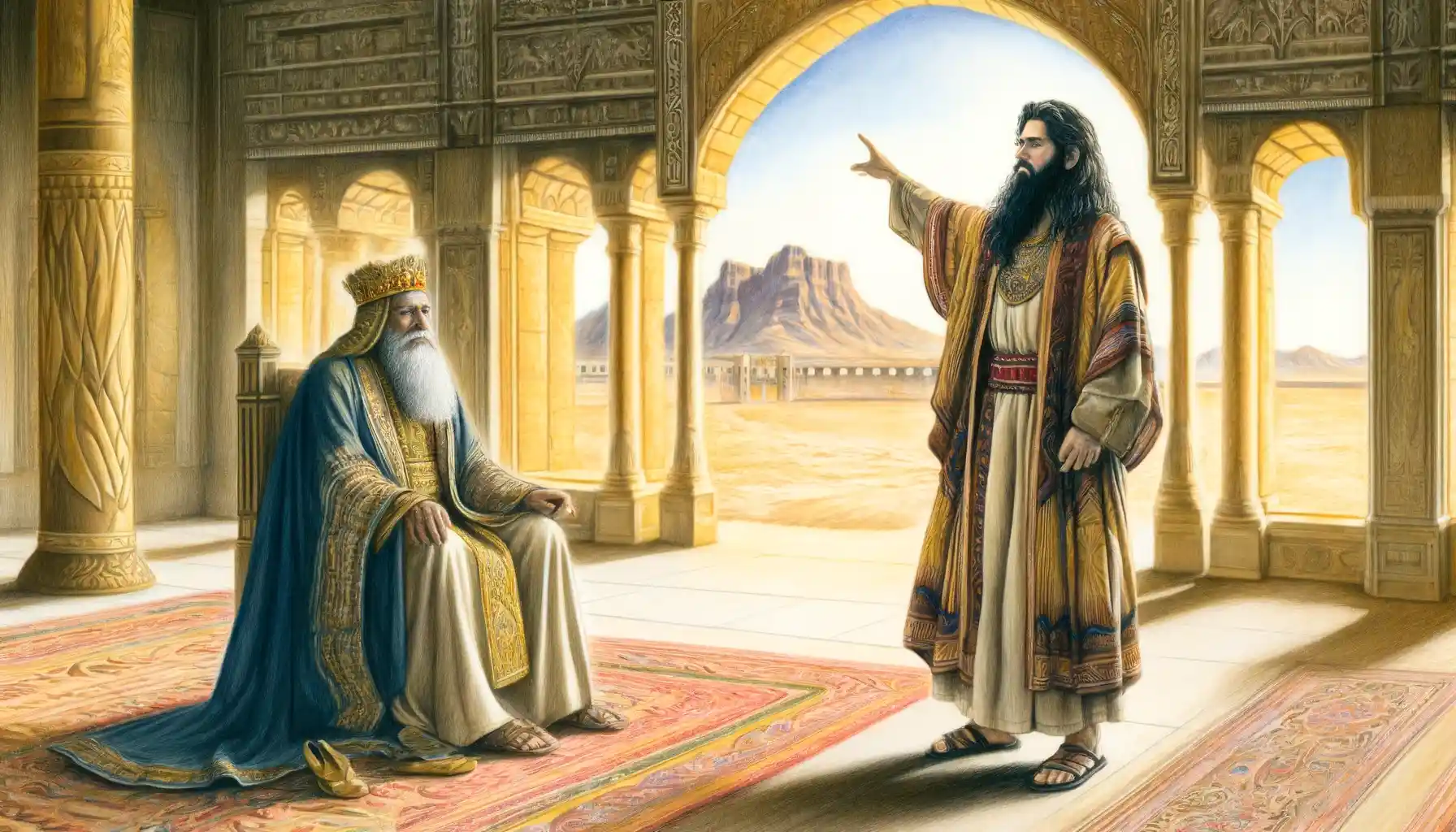The Parting of the Jordan River by Elijah, described in 2 Kings 2:8, marks a crucial moment in biblical narrative, where Elijah, using his cloak, miraculously parts the waters, allowing himself and his successor Elisha to cross on dry ground, symbolizing the transition of prophetic authority and demonstrating God’s enduring support for His prophets.
In 2 Kings 1:10-12, the prophet Elijah calls down fire from heaven to consume two groups of fifty soldiers sent by King Ahaziah to apprehend him, dramatically illustrating God’s supreme power and authority, and serving as a divine rebuke against the king’s idolatry and challenge to prophetic authority.
The account of Elijah praying for rain after a three-year drought, as depicted in 1 Kings 18:41-45, vividly demonstrates God’s sovereignty over natural phenomena and underscores the efficacy of faithful prayer, showing how God responded to Elijah’s earnest intercession by ending the severe drought with a significant rainfall, thereby affirming His supremacy over the idolatrous worship of Baal.
In the dramatic episode on Mount Carmel, as detailed in 1 Kings 18:36-38, Elijah calls down fire from heaven to consume a water-drenched sacrificial offering, decisively demonstrating Yahweh’s supremacy over Baal and significantly impacting Israel’s religious landscape by reaffirming monotheistic worship and the authority of God’s prophetic messenger.
In the narrative of 1 Kings 17:17-24, Elijah raises the widow’s son from the dead in Zarephath, showcasing God’s supreme power over life and death, and reinforcing the prophet’s authority as a true messenger of Yahweh, thereby deepening the widow’s faith and illustrating the reach of God’s miraculous intervention beyond Israel.
During a severe drought, Elijah miraculously provides a widow in Zarephath with a continuous supply of flour and oil, as recorded in 1 Kings 17:14-16, demonstrating God’s unwavering provision and the profound faith of those who trust in His promises.
Elijah’s announcement of a multi-year drought in 1 Kings 17:1 serves as a divine judgment against Israel’s idolatry, directly challenging the worship of Baal and asserting Yahweh’s supreme control over the weather and the fertility of the land.
When a prophet accidentally dropped a borrowed axe head into the Jordan River, Elisha miraculously made the iron float by throwing a stick into the water, allowing the prophet to retrieve it.

